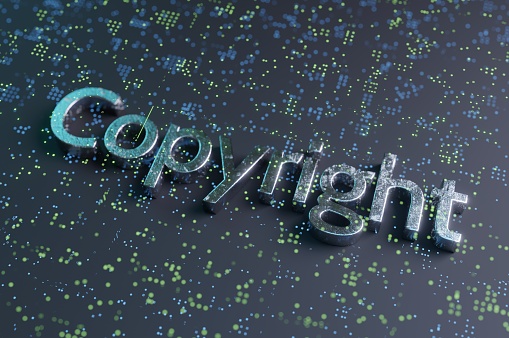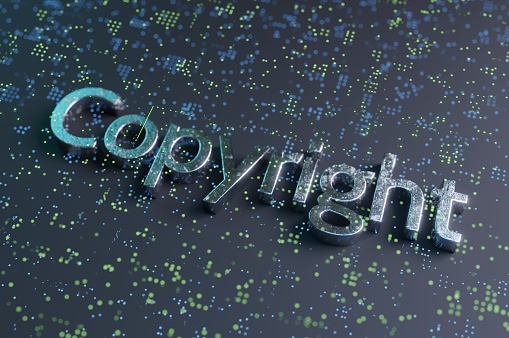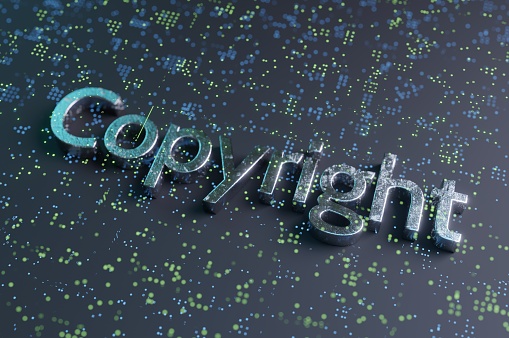
Copyright registration is an important step for creators and owners of original works to protect their intellectual property rights in Nigeria. Copyright is a form of legal protection that grants exclusive rights to the creators or owners of original works, such as literary, artistic, musical, and dramatic works.
Registering copyright in Nigeria provides additional evidence of ownership and can help creators enforce their rights in case of infringement.
In this article, we will discuss the process of registering copyright in Nigeria, including the requirements, procedure, and benefits of copyright registration.
Understanding Copyright in Nigeria
Before delving into the registration process, it's crucial to understand what copyright entails in Nigeria.
According to the Nigerian Copyright Act, copyright protects original works, including literary, artistic, musical, and dramatic works, as well as cinematographic films, sound recordings, and broadcasts. Copyright automatically comes into existence as soon as an original work is created or fixed in a tangible form, such as writing, painting, composing, or recording.
However, registering copyright provides additional protection and benefits, including legal evidence of ownership, a presumption of validity, and the ability to enforce rights in court.
Requirements for Copyright Registration
To register copyright in Nigeria, there are certain requirements that must be met. These requirements include:
a) Completed Application Form: The first step in the registration process is to complete the prescribed application form, which can be obtained from the Nigerian Copyright Commission (NCC) or downloaded from their official website. The application form requires information such as the title of the work, the name of the author or creator, and the nature of the work.
b) Copy of the Work: A copy of the work being registered must be submitted along with the application form. For literary works, this would typically involve submitting a manuscript or a printed copy of the work.
For artistic works, a photograph or visual representation of the work may be required. For musical works, a recorded version of the composition should be submitted. It's important to note that the work must be in its final form and should be clearly identified with the title and the author's name.
c) Proof of Ownership: Evidence of ownership of the work must be provided during the registration process. This can include documents such as assignment or transfer agreements, licensing agreements, or any other document that establishes the ownership of the work.
d) Applicant's Information: The application form will also require information about the applicant, including their name, address, and contact details.
e) Filing Fee: A filing fee must be paid at the time of submitting the application. The current filing fee can be obtained from the Nigerian Copyright Commission (NCC) or their official website.
Procedure for Copyright Registration
Once all the requirements are met, the next step is to submit the application for copyright registration to the Nigerian Copyright Commission (NCC). The Nigerian Copyright Commission (NCC) is the government agency responsible for copyright registration and enforcement in Nigeria.
Established under section 34 of the Copyright Act the Nigerian Copyright Commission (NCC) was inaugurated on 19 August 1989, first as the Nigerian Copyright Council. It was elevated to the status of a commission in April 1996 and this administrative change was confirmed by the Copyright Decree 1999.
The application can be submitted in person or by mail to the Nigerian Copyright Commission (NCC) office in Abuja or any of its zonal offices across the country. The application will be reviewed by the Nigerian Copyright Commission (NCC) for completeness and compliance with the copyright law.
If the application is approved, the Nigerian Copyright Commission (NCC) will issue a Certificate of Registration to the applicant, which serves as evidence of copyright registration.
The Certificate of Registration contains important information such as the title of the work, the name of the author or creator, the registration number, and the date of registration. It's essential to keep the Certificate of Registration in a safe place as it may be required as evidence in case of any dispute or infringement.
The copyright registration process in Nigeria typically takes several weeks to several months, depending on the workload of the Nigerian Copyright Commission (NCC) and the completeness of the application. It's important to be patient and follow up with the Nigerian Copyright Commission (NCC) if there are any delays or issues with the registration process.
Benefits of Copyright Registration
Registering copyright in Nigeria provides several benefits to creators and owners of original works. Some of the key benefits include:
Evidence of Ownership: Copyright registration serves as legal evidence of ownership of the work. In case of any dispute or infringement, the Certificate of Registration can be presented in court to establish ownership, which can be crucial in protecting the rights of the creator or owner.
Presumption of Validity: Copyright registration creates a presumption of validity, meaning that the registered work is presumed to be original and protected by copyright law. This makes it easier to enforce rights in case of infringement, as the burden of proof is on the alleged infringer to prove that the work is not protected.
Ability to Enforce Rights: Registered copyright gives the creator or owner the right to take legal action against anyone who infringes on their rights. This includes the right to seek damages, injunctions, and other remedies in court. Without copyright registration, it may be more challenging to enforce rights and protect against infringement.
Public Notice: Copyright registration provides public notice of the creator or owner's claim to copyright. This can deter potential infringers from using or copying the work without permission, as they will be aware of the creator or owner's legal rights.
International Protection: Copyright registration in Nigeria can also provide protection in other countries that are members of international copyright conventions, such as the Berne Convention and the Universal Copyright Convention. This can be important for creators or owners who have plans to license or distribute their works internationally.
Conclusion
Copyright registration is a crucial step for creators and owners of original works in Nigeria to protect their intellectual property rights. By registering copyright, creators and owners can establish legal evidence of ownership, enjoy a presumption of validity, and have the ability to enforce their rights in case of infringement.
The process of registering copyright in Nigeria involves completing the application form, submitting a copy of the work, providing proof of ownership, and paying a filing fee to the Nigerian Copyright Commission (NCC). Once the application is approved, the NCC will issue a Certificate of Registration, which serves as evidence of copyright registration.
The benefits of copyright registration include evidence of ownership, presumption of validity, ability to enforce rights, public notice, and international protection. If you are a creator or owner of an original work in Nigeria, it's important to consider registering your copyright to safeguard your intellectual property rights.





















